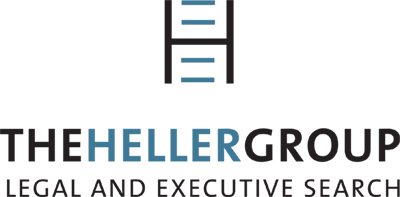Interviews are stressful. With that stress, one may be more inclined to make a faux pas or flub; these types of slips are incredibly different to come back from. Instead of instituting a recovery plan, it is much more proactive to simply avoid such foot-in-mouth moments all together. This week in Interviewing 101, we will continue to speak about the most common errors made during interviews – and why you should absolutely avoid them.
4. The Over-Load Moment
Close-ended questions incite a one word (yes/no) or short response. For example, “Did you complete your MBA in Toronto or Montreal?” or “Did you enjoy completing your LLM in Ottawa?” Open-ended questions are obviously the opposite, they provoke longer answers, and allow much more room for flexibility. For example, “What did you enjoy about the practice of personal injury law?” or “What was your experience like at McGill?” It is normal in interviews to want to share as much as possible about your qualifications in a small amount of time, but avoid overloading the interview with information. This makes what you said less memorable, and is indicative of a lack of focus. When asked close-ended questions, give an appropriate answer. Likewise, when asked an open-ended question, do not give a monosyllabic response, but on the other hand, do not begin an oral dissertation.
5. The Negative Nancy or Negative Neil Moment
The people may be fictional, but the effects are not. When asked about previous work experience, specifically why you left another job, never speak poorly about your antecedent employer. The executive circle and legal industry is small. Everyone knows someone who knows someone. You never know who’s someone your ex-employer may be. Moreover, such remarks are unprofessional and in bad taste. The interviewer may immediately wonder if this is how his or her own firm will be spoken about if you ever leave the position you are interviewing for. Even if you left your previous job on terrible terms, even if it was entirely not your fault, even if you left willingly and on principled grounds; Do Not Speak Negatively About Anyone – Ever.
6. The Buy a Thesaurus Moment
When one is nervous, it can be difficult to be eloquent, articulate, loquacious, verbose, poignant, and concise. Often we revert to common and comfortable phrases and behaviours in unfamiliar environments. Be wary of your personal idiosyncrasies, particularly in regards to your speech patterns. Ask friends and family members, what’s your catchword or phrase? For example, many people end up in a repetitive loop of uttering: Cool, That’s Great, That’s nice, Oh, Okay, and the dreaded Umm. This is a hard habit to break, but being aware that you use certain phrases and words more often than is preferable is the first step. A simple strategy to combat boring and monotonous speech is to read more fiction. A well-read candidate is inevitably more comfortable with a broad spectrum of vocabulary due to more exposure. Alternately, pick up a thesaurus and find synonyms for your go-to qualifiers.

